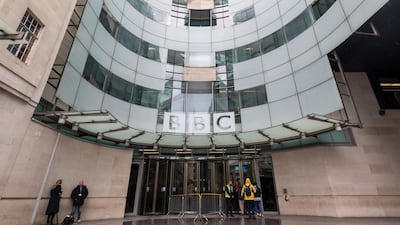The BBC has announced it will review its editorial policies and governance in the wake of the Martin Bashir scandal.
The British broadcaster's board said the internal probe would be conducted by a group of non-executive directors led by Nick Serota, its senior independent director, and report back by September.
"We must not just assume that mistakes of the past cannot be repeated today – we must make sure that this is the case," the board of governors said.
"We think it is right that we review the effectiveness of the BBC's editorial policies and governance in detail."
Earlier, UK Culture Secretary Oliver Dowden accused the BBC of having a “we know best attitude”, arguing the broadcaster needed an overhaul to ensure it was in tune with “all parts of the nation it serves”.
The outcome of an inquiry released last week found the BBC covered up allegations about how its former journalist, Martin Bashir, obtained a 1995 interview with the late Diana, Princess of Wales.
Lord Dyson’s report found Mr Bashir used deceit and forged bank statements to convince the princess to be interviewed.
In the Panorama interview, Diana famously said there were "three of us in this marriage" when asked about her relationship with Prince Charles.
The report also found the BBC's own internal probes into longstanding allegations of impropriety by Mr Bashir were "woefully ineffective".
Princes William and Harry, Diana's two sons, have criticised Mr Bashir and the BBC over their conduct and say Mr Bashir's actions contributed to events that led to Diana's death in a car crash nearly two years after the interview.
But Mr Bashir has defended himself, arguing that Diana was eager to speak out and that he should not be held responsible for "many of the other things that were going on in her life".
In his first detailed response to the inquiry, Mr Dowden wrote that the government would not “stand idly by”, arguing that the broadcaster “needs to improve its culture to ensure this never happens again”.
"The BBC can occasionally succumb to a 'we know best' attitude that is detached both from the criticism and the values of all parts of the nation it serves," he wrote in The Times.
“Groupthink in any organisation results in a lack of challenge and poor decision making. That’s why cultural change must be a focus for the director general and new chair.”
His comments come after Home Secretary Priti Patel questioned the broadcaster’s relevance in the era of streaming, warning that the organisation could not carry on with “business as usual”.
Ms Patel refused to rule out the prospect of charges following the inquiry’s findings.
“If there is subsequent action that needs to be taken, then clearly … that will follow,” she said.
Mr Dowden said there were “fundamental questions” about the future of the TV licence fee, paid for by British households.
He also suggested next year there could be new reforms to overhaul the broadcaster and said the BBC needed to “step up to project British values and distinct quality programming with renewed vigour and ambition as our national champion”.
After the report was published, Prime Minister Boris Johnson said: "I hope very much that the BBC will be taking every possible step to make sure nothing like this ever happens again."

